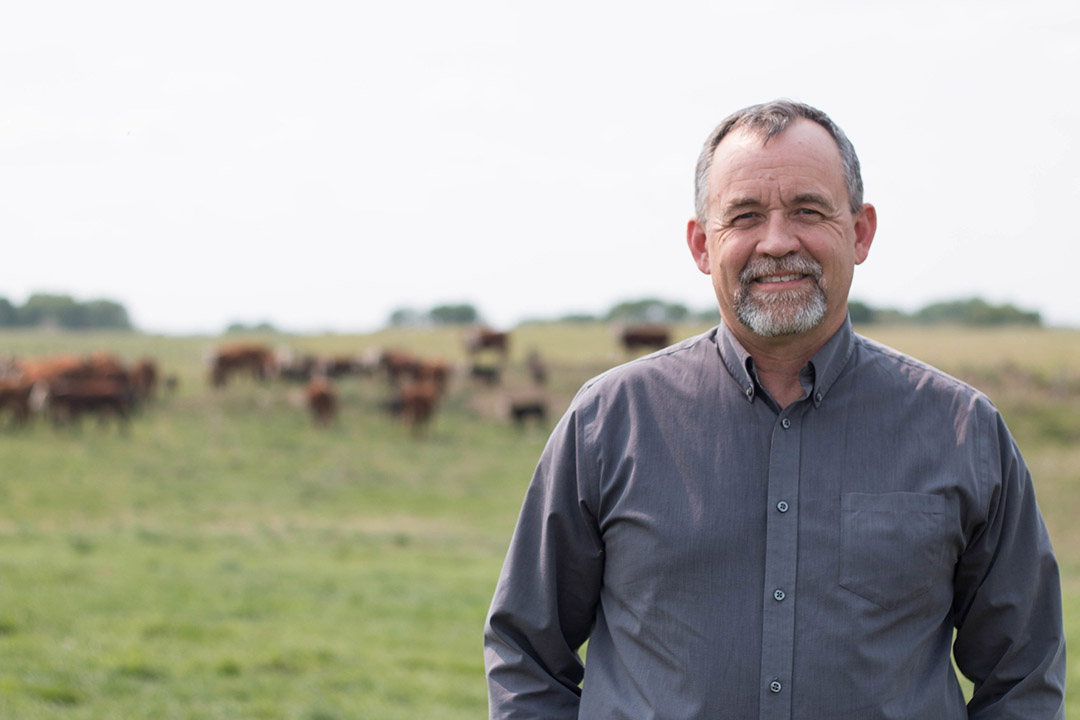
Veterinary professor at USask launches bovine health podcast
A University of Saskatchewan (USask) beef cattle specialist at the Western College of Veterinary Medicine (WCVM) has launched a new podcast that gives listeners a Canadian perspective on beef cattle health and nutrition.
Dr. John Campbell (DVM), whose research interests include beef cattle and health management, posted the first episode of his Beef Cattle Health and Nutrition podcast on Oct. 31.
“I’ve always been interested in knowledge translation,” says Campbell, a professor and researcher in the WCVM’s Department of Large Animal Clinical Sciences. “I’ve had lots of mentors over the years that showed me the importance of that.”
Campbell credits his interest in knowledge translation — or interpreting and sharing research findings with producers and the public—to Drs. Eugene Janzen (DVM), Paul Greenough (DVM) and Ray Butler (DVM), all former faculty members at the WCVM who Campbell worked with when he was a new faculty member more than three decades ago.
“I just saw the importance of that and how that was part of not just doing the research, but trying to get it out to people,” says Campbell, who also writes beef cattle health articles for a regular column in The Western Producer. “[The podcast] is just another way that people can learn some of the things that we’re discovering through research.”
What helps to differentiate this podcast from others is that Campbell and his guests give a Canadian perspective on specific animal health and nutrition topics that are of interest to beef producers.
“It’s nice to get the research out there and the knowledge out there that we’re generating here in Canada out to our producers as well,” says Campbell. “There’s certainly lots of things we can learn from our colleagues in the U.S. as well—our systems are similar. But there are some differences, and most of those are geographic and [about] what we feed and how we manage our cattle.”
Campbell hopes to release podcast episodes weekly and plans “to cover a gamut of health and nutritional topics.” So far, the podcast’s four episodes feature western Canadian researchers discussing topics such as feed testing, preconditioning, vaccinations for calves, and extended grazing.
Campbell says the target audience for his podcast is mainly cow-calf beef producers, but he also plans to include some content that would be interesting to producers involved in feedlot cattle operations.
While Campbell acknowledges it may be too early to measure the podcast’s success, he does identify some advantages of podcasts.
“We’re hoping that it’s another venue of providing that kind of [knowledge extension] information to producers,” says Campbell. “The advantage of it is that you don’t have to leave home and go to a meeting or have to be in front of a computer. You can do it in your truck or while you’re doing something else. That’s what I like about podcasts.”
The project is jointly funded by the Beef Cattle Research Council (BCRC) and Alberta Beef Producers. Campbell adds that the BCRC has a webinar series available for producers that focuses on numerous topics including nutrition, beef quality, and sustainability.
The Beef Cattle Health and Nutrition podcast is available on Spotify, Apple, Google Podcasts, Amazon Music and other podcast providers.
Campbell welcomes feedback on current episodes as well as suggestions for future topics: “If people have ideas or things they’d like to hear, that’d be great.”
Contact Dr. John Campbell (john.campbell@usask.ca) with comments or topic recommendations.

